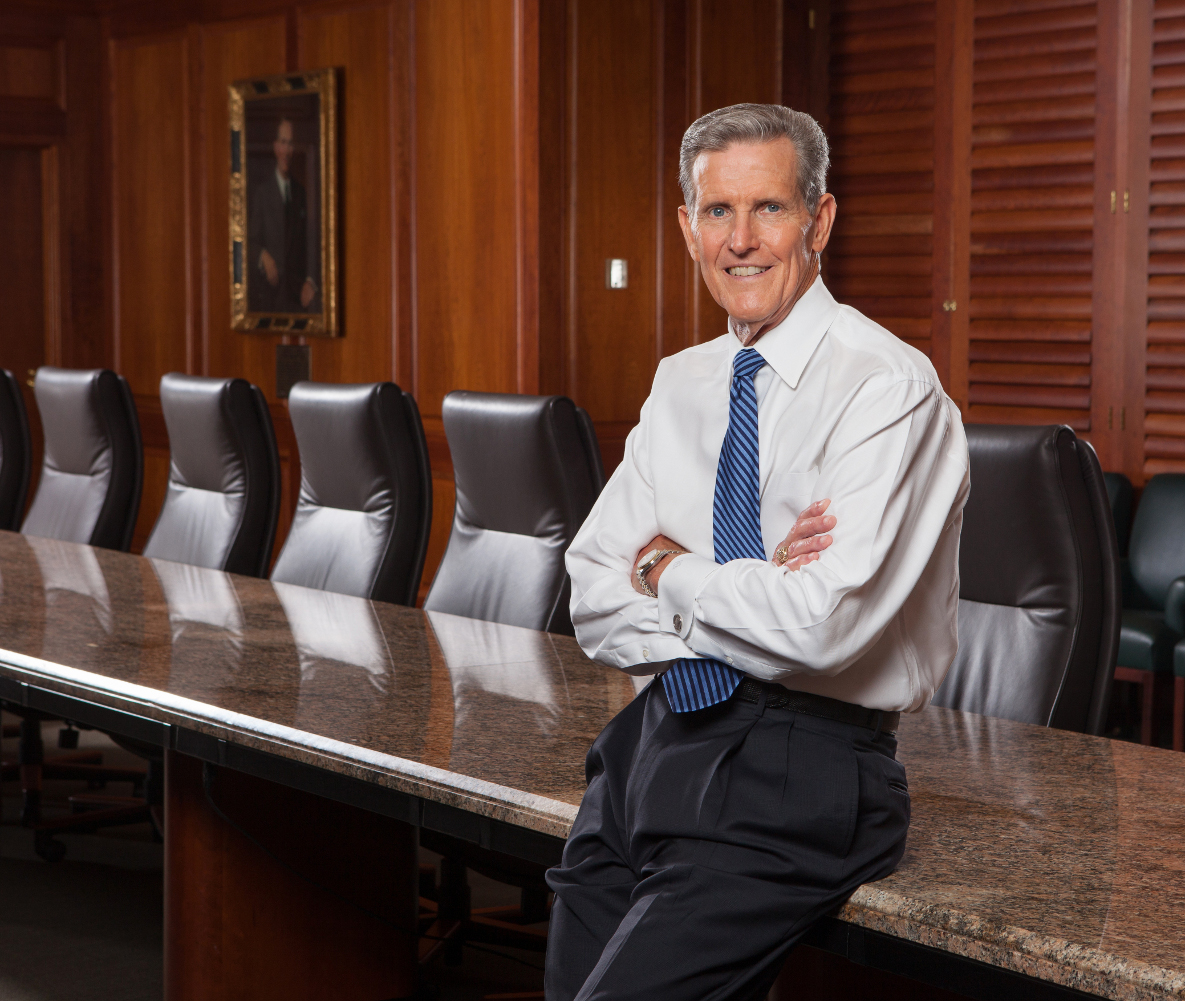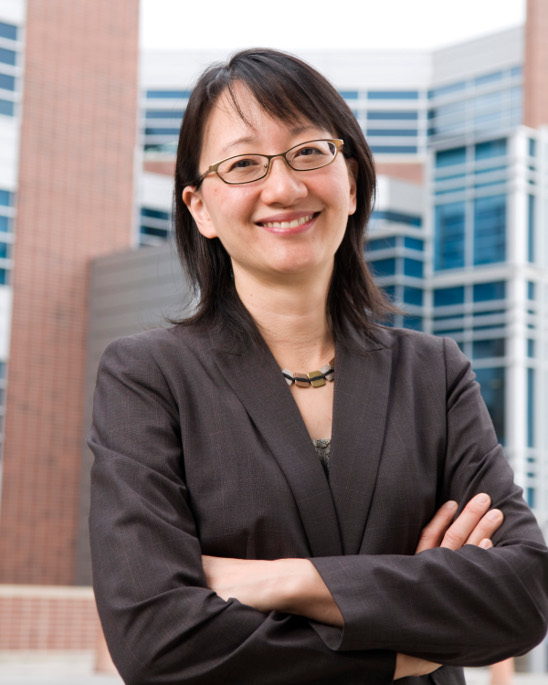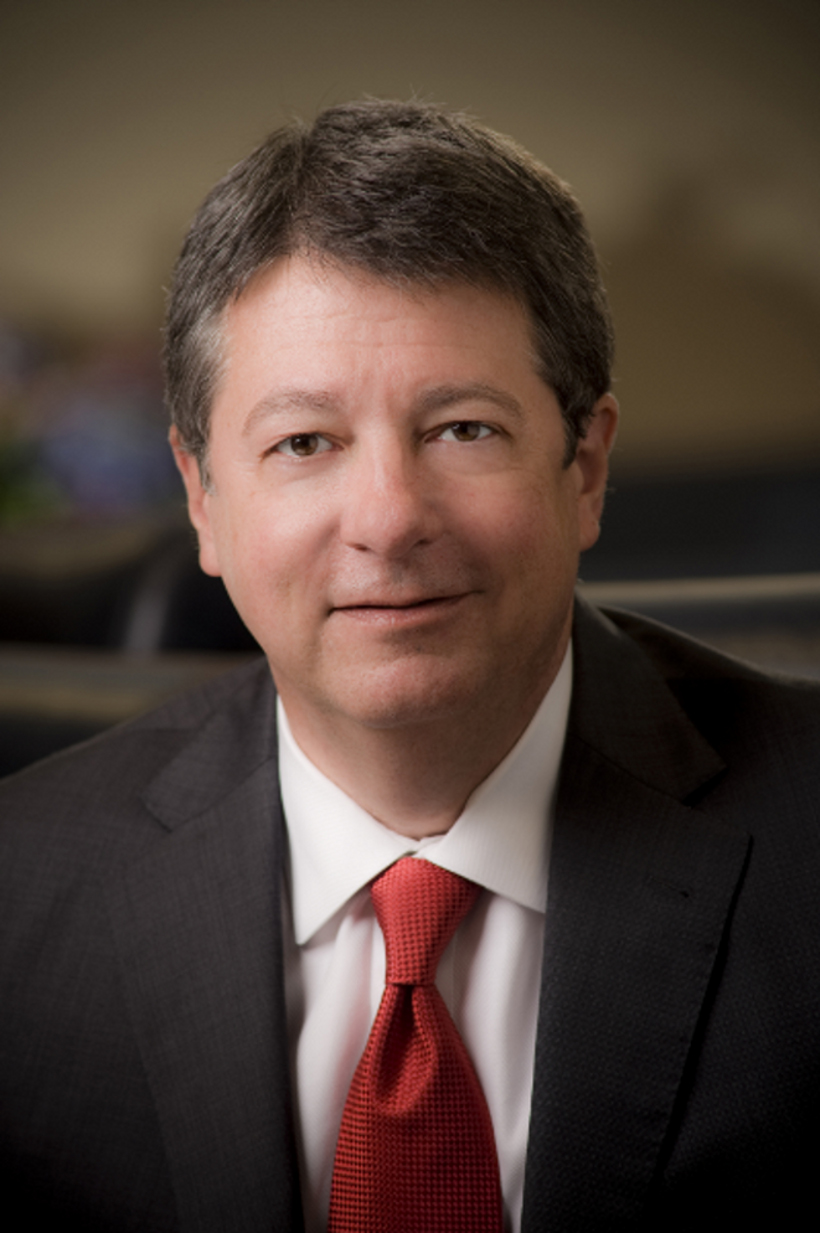One CEO was influenced by her grandmother; another inspired by a conversation with a friend. One leader says the turning point was his brother's hospitalization as a child, while another CEO's career technically began when he mowed lawns at his local hospital campus.
Here, 10 hospital and health system leaders go back to the idea, person or event that sparked their interest in healthcare.
1. Joel Allison, CEO of Dallas-based Baylor Scott & White Health 
"I went to Baylor University with a sense of calling into some type of ministry. I majored in religion and journalism, so I thought perhaps some type of religious journalism. As I was trying to determine God's will, [my wife] Diane's brother, a physician, was doing his residency in family medicine at a hospital in Fort Worth. I was taking a photojournalism class, and decided to do a class project on a day in the life of a resident. I became fascinated with the hospital environment, but I knew I wasn't being called to be a doctor or a nurse.
Later on, after my project, Diane's brother called and said he was going down to Uvalde, Texas, where he was considering joining a group practice. He asked if we'd like to go with him to visit. We were touring the city and the clinic, and they took us to the hospital and its administrative areas, where a new administrator was being introduced. A doctor said, 'We have a new administrator. He was going into the ministry, but got his master's in healthcare administration.' That's when it dawned on me.
I went back to Waco and called the CEO of Waco Hillcrest Baptist Hospital, Alton Pearson. I said, 'Tell me about what you do.' It was amazing. He said this was his ministry, the ministry of healing. I was blessed to be accepted to Trinity University's health care administration program. The rest, as they say, is history."
2. David Bailey, MD, MBA, president and CEO of Jacksonville, Fla.-based children's health system Nemours
"One of my earliest memories is reading a children's book about Edward Jenner, an 18th century physician scientist whose pioneering work with immunization ultimately led to the eradication of smallpox. From that time, I cannot recall ever wanting to become anything other than a physician."

"I was raised by a grandmother who was a strong woman, wife and educator. She insisted that 'her girls' would be educated, independent and capable of supporting themselves financially. Going to college and having a career were never questions in my mind. She thought I should be a nurse, which eventually led me to my career in healthcare."
4. Alan Channing, former president and CEO of Chicago-based Sinai Health System (retired July 1)
"In the late 1960s, I was an undergrad at the University of Cincinnati in the work-study program, where you go to work for a term and then school for a term. I kept looking for a job in these work study cycles that really stimulated me. I was looking for a place to make a difference in people's lives.
They sent me to work at an engineering consultancy and I was designing sewers, then I went to work for Mack trucks, building engines and transmissions. I kept going back to my work advisor at the university and saying, 'You have to find me another job.' Finally, he literally threw the folder at me and said, 'Here, go find something that works for you.' In there I saw a letter from a community hospital in Middletown, Ohio. I thought, 'This looks sort of interesting and sort of fits my needs.' As a student in industrial management, I could apply those skills to work in the hospital.
Fast forward a little, at Sinai, I welcome all of our new caregivers — which is everybody — by teaching them the Old Testament concept of tikkun olam. It's a Hebrew phrase and there are a number of translations, but my favorite is 'repairing the universe,' this audacious notion of making the world a better place for everybody. That's really what triggered my interest as I was searching for a place to build a career. Healthcare could allow me to do that."
5. Ronald DePinho, MD, president of The University of Texas MD Anderson Cancer Center in Houston
"During my formative years as a physician 30+ years ago, I grew to appreciate the physical and emotional challenges that patients and families experience in the face of disease, particularly cancer. I wanted to help alleviate this burden, but quickly recognized it would take both improvements in cancer delivery and access as well as the application of new molecular insights and transformative technology made possible by the recombinant DNA revolution. I was drawn to the concept of using knowledge and technology to convert our 'disease' care system to a 'health' care through prevention, early disease detection and genome-informed treatment."
 6. Vivian Lee, MBA, MD, PhD, CEO of University of Utah Health Care in Salt Lake City
6. Vivian Lee, MBA, MD, PhD, CEO of University of Utah Health Care in Salt Lake City
"Several years ago, I met with a close friend of mine, Gregg Meyer, an internist who was responsible for patient quality and safety at Massachusetts General Hospital in Boston. He and I had a conversation that really shifted my thinking about healthcare dramatically. He was explaining to me the leading role that his hospital played to push forward the early adoption of pay-for-performance metrics, through the use of their advanced electronic medical records and data analytics.
That was an 'aha' moment for me. I realized the role of academic health systems should be to lead the transformation of medicine, and I also realized I wanted to help. The model seemed clear: We had to reinvent ourselves and then make sure our trainees shared our new values to carry these changes forward.
To really reinvent our healthcare delivery systems, we need to partner and integrate our thought leaders directly into these systems — everyone from health economists to bioinformaticians to behavioral change psychologists. These academicians could help us approach problems with new perspectives, with more rigor in their experimental approaches, and then disseminate and share lessons learned. As the training grounds for new healthcare professionals, if we do our jobs right, our trainees will embrace a new culture of the patient-centered, value-driven, transparent healthcare — and in their careers, they can lead other organizations in that transformation and ongoing improvement."
7. Stephen Mansfield, PhD, president and CEO of Dallas-based Methodist Health System
"I kind of meandered into healthcare. I didn't really pick it per se. My mother worked in the business office in the little hospital in the community I grew up in. She got me to mow the grass in high school, I think because she paid me less than the person they paid before. When I went to college, I worked at that same hospital as a combination admissions clerk/information desk/private branch exchange operator. It was really just a way to make a living. And then I met a very good friend in what was a new profession in the early 1970s called respiratory therapy.
In my hometown, there was not a university for that, so I left and went to community college and got a degree in RT. That I did choose, and I loved being a respiratory therapist. I worked in RT for about 10 years or so, and it was such a new field that right out of college I was able to become director of a department. Then I met a young hospital CEO, not much older than myself, who got me interested in the business side of healthcare. My focus had always been on the clinical side; I loved taking care of patients. But he really made the business side attractive and talked me into going back and getting my MBA. He helped me get first job as a hospital CEO in 1986.
There's nothing I rather do than what I do in healthcare."

8. Randy Oostra, president and CEO of Toledo, Ohio-based ProMedica
"Karl Wegner was a physician who ran a company I worked for as a consultant. One day we were flying to western South Dakota, and he asked what I'd be doing when I was 50. I was 30 at the time. He told me healthcare is all about helping people, and he asked if I ever thought about working in healthcare management. He then lined me up with a couple of hospital administrators to talk to. It was his poking and prodding that helped me get started."
9. David Pate, MD, JD, president and CEO of St. Luke's Health System in Boise, Idaho
"My brother and I were very close growing up. When I was still very young, he went into the hospital for a protracted stay. I think that is when my interest in becoming a physician first developed, not because I really understood what was involved with my brother's illness, but because I was so overwhelmed by his absence that I thought by becoming a doctor, I would be able to keep my family well and out of the hospital. Here I am, nearly 50 years later, working on how to keep my entire community well and out of the hospital!"
10. Michael Schatzlein, MD, CEO of Nashville, Tenn.-based Saint Thomas Health
The family physician, or general practitioner at the time, in my hometown took an interest in me. He arranged for me to shadow him in the office, to work one summer in a clinical laboratory and to tour the Eli Lilly [pharmaceutical] plant in Indianapolis. Lilly was just starting to make Darvon at the time, and I remember them showing us how they tested the efficacy of pain medications on laboratory rats. These experiences led me to consider pre-med for undergraduate studies. 
The above quotes stem from CEOs' responses to Becker's Hospital Review's Corner Office questionnaire, an ongoing series that runs in print and online. Hospital or health system presidents and CEOs interested in contributing to this series: Please email Molly Gamble at mgamble@beckershealthcare.com.
More Articles on Hospital and Health System CEOs:
7 things CEOs hate
5 questions leaders should quit asking
7 things CEOs can do today to advance their careers


